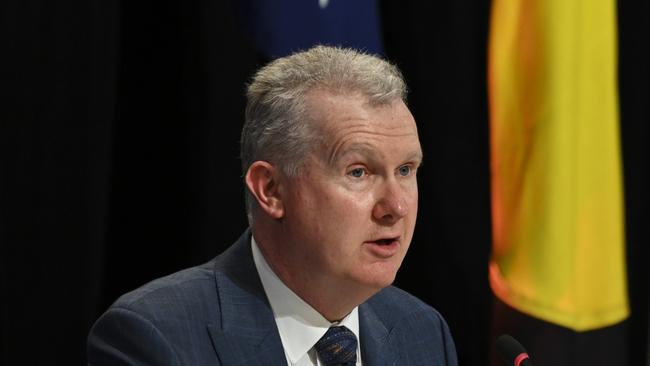Labor’s ‘brutal reality check’ on wages
Business says Productivity Commission report a warning to Labor.

National employers have declared the Productivity Commission’s concerns about multi-employer bargaining have sent a clear warning shot to the Albanese government ahead of Labor finalising industrial relations policy changes.
ACTU secretary Sally McManus denounced the commission as a politicised relic of the Coalition government, asserting it had “no idea how wage bargaining works”.
Employment Minister Tony Burke said the government believed multi-employer bargaining could help “unlock wage gains, particularly for women in low-paid industries like aged care and childcare, and those working in small business”.
The commission’s report said the expansion of multi-employer bargaining could result in more strikes, supply chain disruptions, cascading wage pressures and damage to the economy.
Australian Industry Group chief executive Innes Willox said the report was a “brutal reality check for unions proposing radical reform in this area”, and the government should heed the commission’s advice to undertake changes with caution.
“The PC report fires a very clear warning shot that an expansion of multi-party bargaining risks damaging our economy and workplaces.” he said.
“The last thing we need as Australia struggles to stave off a recession is out-of-control union-led strikes and industrial action.”
Business Council chief executive Jennifer Westacott said the commission was right to warn of unintended consequences in overreaching on workplace reform.
“No one wants to return to the uncertainty and disruption of a workplace relations system that saps productivity by stoking conflict and strike action,” she said.
“That’s bad for workers, bad for consumers and bad for businesses. The best way to get wages growing is by reinvigorating bargaining at an enterprise level to drive productivity.”
While warning of potential negative consequences, the commission said changes to multi-employer bargaining could reduce transaction costs for some small employers and improve the overall bargaining position of employees, allowing them to achieve more favourable wages and conditions, at least in the short term.
Mr Burke said the commission report “confirms expanded access to multi-employer bargaining could help improve wages and reduce transaction costs for small business”.
“It specifically says that giving low-paid workers better access to multi-employer bargaining would remove red tape without impacting productivity,” he said.
“There was clear support at the Jobs and Skills Summit for an expansion of multi-employer bargaining, including from key business groups. The government is consulting on the details of what this will look like.”
Ms McManus claimed the commission had “no credibility”, and one of the last acts of Josh Frydenberg as treasurer was to charge the body with “attacking workers’ rights”. “They have no idea how wages bargaining works, do not consult & ignore international research,” she tweeted.
Australian Chamber of Commerce and Industry chief executive Andrew McKellar said excessively broadening the scope of multi-employer agreements would lead to “industry-wide strike action, which we simply cannot afford”.



